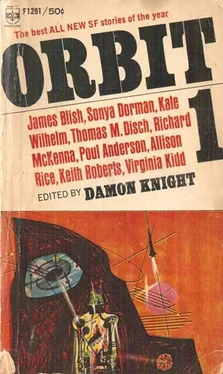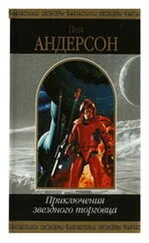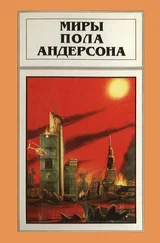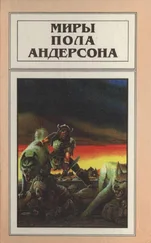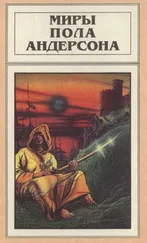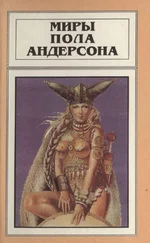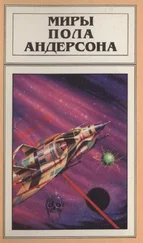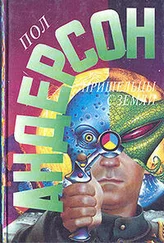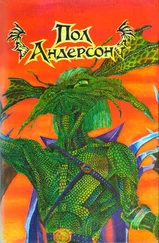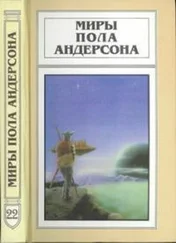Пол Андерсон - Orbit 1
Здесь есть возможность читать онлайн «Пол Андерсон - Orbit 1» весь текст электронной книги совершенно бесплатно (целиком полную версию без сокращений). В некоторых случаях можно слушать аудио, скачать через торрент в формате fb2 и присутствует краткое содержание. Год выпуска: 1966, Жанр: Фантастика и фэнтези, на английском языке. Описание произведения, (предисловие) а так же отзывы посетителей доступны на портале библиотеки ЛибКат.
- Название:Orbit 1
- Автор:
- Жанр:
- Год:1966
- ISBN:нет данных
- Рейтинг книги:4 / 5. Голосов: 1
-
Избранное:Добавить в избранное
- Отзывы:
-
Ваша оценка:
- 80
- 1
- 2
- 3
- 4
- 5
Orbit 1: краткое содержание, описание и аннотация
Предлагаем к чтению аннотацию, описание, краткое содержание или предисловие (зависит от того, что написал сам автор книги «Orbit 1»). Если вы не нашли необходимую информацию о книге — напишите в комментариях, мы постараемся отыскать её.
Orbit 1 — читать онлайн бесплатно полную книгу (весь текст) целиком
Ниже представлен текст книги, разбитый по страницам. Система сохранения места последней прочитанной страницы, позволяет с удобством читать онлайн бесплатно книгу «Orbit 1», без необходимости каждый раз заново искать на чём Вы остановились. Поставьте закладку, и сможете в любой момент перейти на страницу, на которой закончили чтение.
Интервал:
Закладка:
Yet the time left for decision was obviously now very short, even supposing — as she had no right to do — that the environment-maintaining functions of the suit were still in perfect order. The quivering of the bubble was close to being explosive, and even were it to remain intact, it might shut her off from the outside world at any second.
The free cloak dipped lower, as if in curiosity. That only made the trembling worse. She wondered why.
Was it possible — was it possible that the thing embracing her companion was jealous?
There was no time left to examine the notion, no time even to sneer at it. Act — act! Forcing her way off the sled, she stumbled to the well and looked frantically for some way of stopping it up. If she could shut off the thermal, bring the free cloak still closer — but how?
Throw rocks. But were there any? Yes, there, there were two, not very big, but at least she could move them. She bent stiffly and tumbled them into the crater.
The liquid froze around them with soundless speed. In seconds, the snow rimming the pool had drawn completely over it, like lips closing, leaving behind only a faint dimpled streak of shadow on a white ground.
The wind moaned and died, and the free cloak, its hems outspread to the uttermost, sank down as if to wrap her in still another deadly swath. Shadow spread around her; the falling cloak, its color deepening, blotted Saturn from the sky, and then was sprawling over the beautiful banners of the rings—
The virus bubble convulsed and turned black, throwing her to the frozen ground beside the hummock like a bead doll. A blast of wind squalled over her.
Terrified, she tried to curl into a ball. The suit puffed up around her.
Then at last, with a searing invisible wrench at its contained kernel of space-time which burned out the control box instantly, the single creature that was the bubble cloak tore itself free of Ulla and rose to join its incomplete fellow.
In the single second before she froze forever into the livid backdrop of Titan, she failed even to find time to regret what she had never felt, for she had never known it, and only died as she had lived, an artifact of successful calculation. She never saw the cloaks go flapping away downwind — nor could it ever have occurred to her that she had brought anything new to Titan, thus beginning that long evolution the end of which, sixty millions of years away, no human being would see.
No, her last thought was for the virus bubble, and it was only two words long:
You philanderer—
Almost on the horizon, the two cloaks, the two Titanians, flailed and tore at each other, becoming smaller and smaller with distance. Bits and pieces of them flaked off and fell down the sky like ragged tears. Ungainly though the cloaks normally were, they courted even more clumsily.
Beside Ulla, the well was gone; it might never have existed. Overhead, the banners of the rings flew changelessly, as though they too had seen nothing — or perhaps, as though in the last six billion years they had seen everything, sittings upon siftings in oblivion, until nothing remained but the banners of their own mirrored beauty.
POUL ANDERSON, now forty, has been writing science fiction since his college days, and has probably published more of it than any other living writer. (The list of his stories since 1950 in the M.I.T. index fills over three solid pages.) As a thinker, Anderson belongs to the rationalists; as a writer, to the romantics. The paradoxical combination is a powerful one, as you will see here.
I asked the author about the reference to “Painted Jaguar,” and he advised me to go and reread Kipling’s “ ‘Just So’ Stories.” I did, and advise you to do the same.
THE DISINHERITED
By Poul Anderson
Like a bullet, but one that hunted its own target, the ferry left the mother ship and curved down from orbit. Stars crowded darkness, unwinking and wintry. Jacob Kahn’s gaze went out the viewport over the pilot board, across thirty-three light-years to the spark which was Sol. Almost convulsively, he looked away again, seeking the clotted silver of the Milky Way and the sprawl of Sagittarius. There, behind dust clouds where new suns were being born, lay the galaxy’s heart.
Once he had dreamed of voyaging there himself. But he had been a boy then, who stood on a rooftop and peered through city sky glow and city haze. Afterward the dream struck facts of distance, energy and economics. The wreck had not gone under in an instant. His sons, his grandsons—
No. Probably no man ever would.
Beside him, Bill Redfeather’s craggy features scowled it instruments. “All systems check,” he said.
“I should hope so.” Kahn’s mouth twitched.
Redfeather looked irritated. It was the pilot’s, not the co-pilot’s, responsibility to be sure they would not burn like a meteorite in the atmosphere of the planet.
Its night side swelled before them, a monstrous darkness when you remembered the lights of Earth, but rimmed to dayward with blue and rosy red. An ocean sheened, polished metal scutcheoned with a hurricane, and that was alien, too, no pelagicultural cover, no floating towns or crisscrossing transport webs. As he watched Kahn staring at it, Redfeather’s mood turned gentle.
“You think too damn much, Jake.”
“Well-” Kahn shrugged. “My last space trip.”
“Nonsense. They’ll need men yet on the Lunar run.”
“A nice, safe shuttle.” Kahn’s Israeli accent turned harsher. “No, thank you. I will make a clean break and stay groundside. High time I began raising a family anyway.”
The ferry was coming into daylight now. Groombridge 1830 rose blindingly over the curve of its innermost planet. Clouds drifted gold across plains and great wrinkled mountains.
“Think we can get in some hunting and such?” Redfeather asked eagerly. “I mean the real thing, not popping loose at a robot in an amusement park.”
“No doubt,” Kahn said. “We will have time. They can’t pack up and leave on no more notice than our call after we entered orbit.”
“Damned shame, to end the project,” Redfeather said. “I hope they solved the rotation problem, anyhow.”
“Which?”
“You know. With the tidal action this sun must exert, why does Mithras have only a sixty-hour day?”
“Oh, that. That was answered in the first decade the base was here. I have read old reports. A smaller liquid core makes for less isostatic friction. Other factors enter in, too, like the absence of a satellite. Trivial, compared to what they have been learning since. Imagine a biochemistry like Earth’s, but with its own evolution, natives as intelligent as we are but not human, an entire world.”
Kahn’s fist smote the arm of his chair light-bodied under the low deceleration, bounced a little in his harness. “The Directorate is governed by idiots,” he said roughly. “Terminating the whole interstellar program just because some cost-accountant machine says population has grown so large and resources so low that we can’t afford to keep on learning. My God, we can’t afford not to! Without new knowledge, what hope have we for changing matters?”
“Could be the Directors had that in mind also,” Redfeather grunted.
Kahn gave the co-pilot a sharp glance. Sometimes Redfeather surprised him.
The houseboat came down the Benison River, past Riptide Straits, and there lay the Bay of Desire. The sun was westering, a huge red-gold ball that struck fire off the waters. Kilometers distant, on the opposite shore, the Princess reared her blue peak high over the clustered, climbing roofs of Withylet village; closer at hand, the sails of boats shone white as the wings of the sea whistlers cruising above them. The air was still warm, but through an open window David Thrailkill sensed a coolness in the breeze, and a smell of salt, off the Weatherwomb Ocean beyond the Door.
Читать дальшеИнтервал:
Закладка:
Похожие книги на «Orbit 1»
Представляем Вашему вниманию похожие книги на «Orbit 1» списком для выбора. Мы отобрали схожую по названию и смыслу литературу в надежде предоставить читателям больше вариантов отыскать новые, интересные, ещё непрочитанные произведения.
Обсуждение, отзывы о книге «Orbit 1» и просто собственные мнения читателей. Оставьте ваши комментарии, напишите, что Вы думаете о произведении, его смысле или главных героях. Укажите что конкретно понравилось, а что нет, и почему Вы так считаете.
